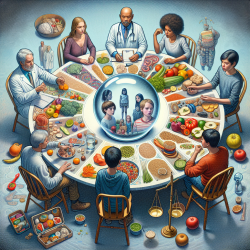Shiga toxin-producing Escherichia coli (STEC) is a bacterium known for causing gastrointestinal illnesses and severe complications like hemolytic uremic syndrome (HUS), which can lead to fatal organ damage. Infections with STEC are prevalent worldwide, with significant cases reported in Europe, including Denmark. Understanding the determinants of sporadic STEC infections is crucial for practitioners aiming to improve public health outcomes.
Key Findings from the Danish Study
The research titled "Determinants of Sporadic Shiga Toxin-Producing Escherichia coli (STEC) Infection in Denmark, 2018–2020: A Matched Case–Control Study" provides valuable insights into the risk factors associated with STEC infections. Conducted over three years, this study involved 1583 STEC cases and 6228 controls, offering a comprehensive analysis of infection determinants.
Significant Risk Factors Identified
- Beef Consumption: The study confirmed that beef consumption, particularly boiled and fried minced beef, is a significant risk factor for STEC infections.
- Raw Milk and Grilled Food: Drinking raw (unpasteurized) milk and consuming grilled food were also identified as major determinants.
- Household Factors: Having a household member using diapers increased the risk of infection.
- Environmental Exposures: Contact with animals at zoos or farms and swimming in outdoor pools were associated with higher infection odds.
Implications for Practitioners
The findings from this study are instrumental for practitioners focusing on public health and infection prevention. By understanding these determinants, practitioners can develop targeted interventions to reduce infection rates. Here are some ways practitioners can leverage this research:
Developing Targeted Public Health Strategies
- Educational Campaigns: Educate the public about the risks associated with consuming undercooked beef and raw milk. Emphasize proper food handling and cooking practices.
- Hygiene Practices: Promote hygiene practices when interacting with animals, especially in settings like petting zoos and farms.
- Water Safety Measures: Implement measures to ensure safe recreational water use and address water supply disruptions promptly.
Encouraging Further Research
The study highlights areas where further research could enhance understanding and prevention of STEC infections. Practitioners are encouraged to explore the following research avenues:
- Cultural and Dietary Habits: Investigate how cultural dietary habits influence infection rates and identify potential intervention points.
- Environmental Factors: Study the role of environmental exposures in different settings to develop location-specific guidelines.
- Age-Specific Risk Factors: Examine age-specific eating habits and household structures to tailor prevention strategies effectively.
Conclusion
This comprehensive study provides valuable insights into the determinants of sporadic STEC infections in Denmark. By applying these findings, practitioners can enhance public health strategies and reduce infection rates. The research underscores the importance of considering both food-related and non-food-related exposures in developing effective interventions.
To read the original research paper, please follow this link: Determinants of Sporadic Shiga Toxin-Producing Escherichia coli (STEC) Infection in Denmark, 2018–2020: A Matched Case–Control Study.










